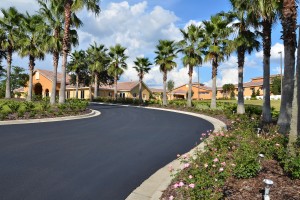Press Release: Florida’s New Post-Acute Residential Program Takes Trauma Patients From “Golden Hour” To “Platinum Post-Acute Period”
NeuLife, New Post-Acute Residential Neurorehabilitative Facility, Helps Address Deficit of Beds Nationally
MT. DORA, Fla., Jan. 30, 2014 /PRNewswire/ — NeuLife announces its grand opening and reception for community and industry leaders and for the media February 5, 2014, to unveil its exceptionally individualized neurorehabilitative programs that transition individuals with catastrophic injuries from trauma to the highest level of independence possible. NeuLife’s multidisciplinary team offers an innovative approach that centers on each individual’s physical, behavioral, psychological, emotional and personal needs to achieve rehabilitation for the whole person during a crucial “platinum post-acute period” following acute care. The NeuLife residential facility helps to address a deficit of beds nationally by providing crucial post-acute rehabilitation services to these individuals. Only 1,337 neurological beds exist—both acute and sub-acute—nationwide. This is significant in light of the importance of getting individuals timely post-acute care that may require an indefinite stay.
 “There is an unmet need in the field of specialized residential post-acute programs for individuals who have sustained catastrophic injuries including TBI, SCI, amputations and multiple trauma,” says Kester Nedd, D.O., board certified neurologist and medical director of the Neuro Rehab Program at Jackson Memorial Hospital, a level one trauma center, and managing director for Design Neuro Science Center in Miami, Fla. “NeuLife meets this need and offers specialization in an environment conducive to healing and recovering where a wide range of therapies, counseling, medical management and therapeutic activities enhance each person’s individualized care plan.”
“There is an unmet need in the field of specialized residential post-acute programs for individuals who have sustained catastrophic injuries including TBI, SCI, amputations and multiple trauma,” says Kester Nedd, D.O., board certified neurologist and medical director of the Neuro Rehab Program at Jackson Memorial Hospital, a level one trauma center, and managing director for Design Neuro Science Center in Miami, Fla. “NeuLife meets this need and offers specialization in an environment conducive to healing and recovering where a wide range of therapies, counseling, medical management and therapeutic activities enhance each person’s individualized care plan.”
“In trauma centers, medical professionals understand the critical nature of the ‘golden hour’—that short period of time, about one hour, when prompt medical attention may determine life or death for people with catastrophic injuries. A similar urgency applies to post-acute care,” says Donna Check, executive director, NeuLife. “Too often, individuals, having reclaimed their lives in the trauma center, return home prematurely without crucial post-acute rehabilitation, which effectually can transition them to increased independence. Or, worse, they return home prematurely only to experience a decline, which is often the result of a lack of understanding about the benefits of timely post-acute rehabilitation.” Check explains, “Skipping that post-acute rehab is like giving birth to an infant, only to abandon him with no one to nurture him to maturity. This is what we, at NeuLife, call the ‘platinum post-acute period’—that crucial window following acute care that’s needed to nurture the whole person to health with specialized, clinically relevant services. Proper and timely post-acute rehabilitation and care may determine the difference between disability and independence.” Now, NeuLife helps meet a national need, offering 54 attractive, comfortable rooms and specialized services to help these individuals achieve independence.
NeuLife proprietary programs offer individuals with catastrophic injuries a new, innovative approach to neurorehabilitation, which involves input from them and their families to customize a clinically relevant rehabilitative plan in a residential facility. NeuLife offers a warm, homelike environment that’s therapeutically designed to enhance function, encourage wellness, foster appropriate interactions, model social skills and practice learned skills in all settings, including the surrounding community.
According to the Centers for Disease Control (CDC), about 1.7 million people suffer from traumatic brain injury (TBI) in the United States annually; in Florida, from 2005 to 2007, 96,450 TBIs occurred per year. TBI contributes to almost a third of all injury-related deaths in the U.S. TBIs occur often in adolescents ages 15 to 19 and adults age 65 and older. According to the 2010 Census, the population of adults age 65 plus grew faster than younger groups at a rate of 15 percent to 40 million or 13 percent of the U.S. population. According to the CDC, falls remain the leading cause of TBIs. Sixty-one percent (61%) of TBIs caused by falls occur in adults age 65 plus. In 2000, in the U.S., direct and indirect medical costs, such as lost productivity, due to TBIs totaled about $76.5 billion. According to the U.S. 2010 Census, Florida is among the top five most populous places in the U.S. with more than 18 million people; in 2012, 20 percent of the Florida population comprised those under age 18, and 18 percent comprised those
age 65 and over.
NeuLife is an innovative, fully accessible residential post-acute facility situated on 43 beautiful acres near downtown Mt. Dora where individuals with catastrophic injuries can enjoy recreational outings and become productive members of the community. NeuLife’s multidisciplinary team tailors plans to meet the specific needs and goals of each client served, including: neurorehabilitative and neurobehavioral services; services for catastrophic and challenging diagnoses; supported living; and independent functional evaluation. NeuLife serves adolescents and adults—ages 18 and over—only. It does not provide pediatric care. Individuals referred to NeuLife may stay for any established period of time, whether for short-term, long-term, or respite care. NeuLife embraces a standard of excellence and a wellness philosophy that engages individuals in a positive, uplifting therapeutic environment where caring staff encourage, assist and support them with a goal toward achieving superior outcomes and individual independence.
To learn more, visit NeuLifeRehab.com.
To view this article in Spanish, click here.
Para más información llame 352.431.4194.








